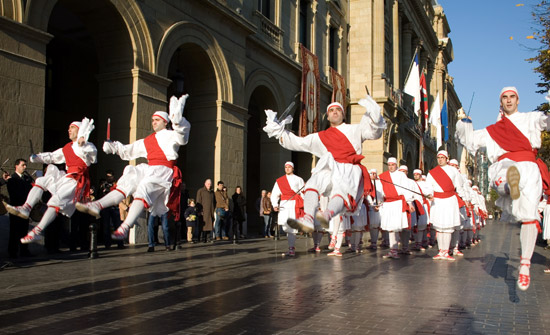Music: Music Overview
Waves of immigrants have washed over France since human beings first came to the Continent. Stone Age cultures left behind wondrous cave paintings and standing stones. Ancient Phoenicians and Greeks settled the Mediterranean coast. The Celts took over most of France, then were taken over in turn by the Romans. Then the Germanic Franks and Burgundians elbowed in. Somewhere out of this layering of cultures and languages, modern France, with its multiple musical idioms, emerged.
A Juggler’s Handful of Languages
All of France does not speak French. In l’Hexagone (as the country is sometimes referred to, for its geographical shape) there are at least six other languages spoken by some part of the population. In Paris, and in most of the country, people speak the langue d’oil, what we think of as French French. In Alsace Lorraine there are two Germanic dialects, Alsatian and Franconian; in the west of Brittany a quarter-million people speak Breton, a Celtic language related to Welsh. In the south there are several dialects of the langue d’Òc, also called Occitan. The Corsicans speak Corsu. There are also small populations speaking Catalan (closely related to Occitan) and Basque (related to no other language on earth). And an increasing number of people (more than two percent) speak Arabic.
Ancient Folk Traditions
There are at least as many kinds of music in France as there are languages. In spite of increasing centralization and the dominance of Paris in language and culture, ancient folk traditions survive throughout modern France, are being revived, and are now more vigorous than ever.
Recently France has seen significant immigration from its former colonies. These immigrants bring their cultures and customs with them, and their music as well.
Article written for World Trade Press by Marc Lecard.
Copyright © 1993—2025 World Trade Press. All rights reserved.

 France
France 